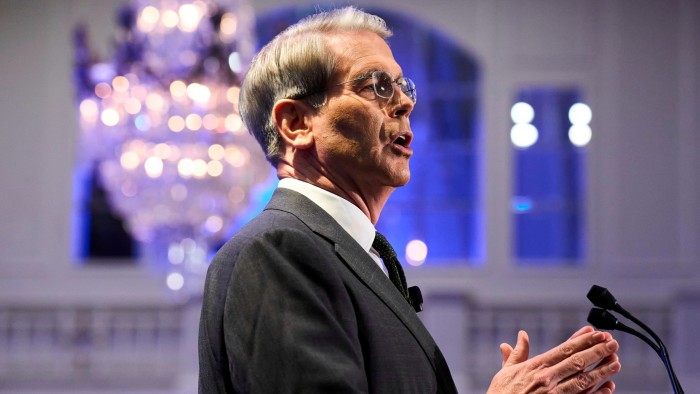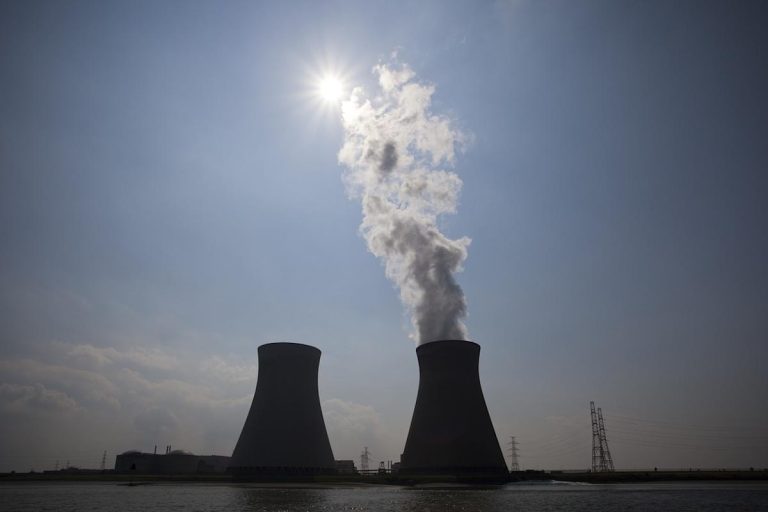Unlock the White House Watch newsletter for free
Your guide to what Trump’s second term means for Washington, business and the world
US Treasury secretary Scott Bessent has cautioned that any de-escalation in the US-China trade war would have to be mutual, denying suggestions that President Donald Trump would unilaterally cut levies on Chinese goods.
Speaking to reporters in Washington on Wednesday, Bessent said “there would have to be a de-escalation by both sides”, echoing comments he made to a JPMorgan conference on Tuesday, where he warned that the US-China trade war was “not sustainable”.
Bessent also repeated that the high level of tariffs the US and China had imposed on each other was “the equivalent of an embargo”. Trump has imposed a 145 per cent levy on Chinese goods and Beijing has retaliated with a duty of 125 per cent.
“A break between the two countries on trade does not suit anybody’s interests,” Bessent told reporters.
When asked if the US would make a unilateral offer to de-escalate trade tensions with China, Bessent responded: “Not at all.”
The Treasury secretary’s remarks came after The Wall Street Journal on Wednesday said Trump was considering unilaterally cutting tariffs on China.
The White House insisted Trump had been clear that “China needs to make a deal” with the US. “When decisions on tariffs are made, they will come directly from the president. Anything else is just pure speculation,” it said.
US stocks gave back some of their earlier gains on the back of Bessent’s comments, leaving the blue-chip S&P 500 up 2.2 per cent just before noon in New York. The tech-heavy Nasdaq Composite was 3.2 per cent higher.
Both indices had sold off heavily on Monday on concerns that Trump was considering firing US Federal Reserve chair Jay Powell. On Tuesday, the president reassured markets by saying he had “no intention” of sacking him.
“Uncertainty and inconsistency are economic poison,” said Steven Grey, chief investment officer at Grey Value Management. “By endlessly reversing itself and reneging on earlier commitments, this White House has permanently conditioned everyone to take its statements with a grain of salt.”
Bessent cautioned that the two countries had not held any trade talks. Sources familiar with the discussions in Washington and Beijing have said that China had made clear that it viewed Trump’s tariffs as a form of economic bullying and will not capitulate.
“Both sides are waiting to speak to the other,” said Bessent, who would not be drawn on the timing of any talks.
Bessent told investors at the JPMorgan conference that based on data from two weeks ago, maritime container bookings from China to Washington had fallen by 64 per cent.
“It’s both a blessing and a curse that the strongest relationship is at the very top,” he said. “So it’s between President Xi [Jinping] and President Trump, and obviously, in any de-escalation, the talks would not begin at the very top, so I don’t have a timeframe.”
Trump has said he wants to negotiate with Xi, but the Chinese have made clear that they would not consider a phone call, yet alone a summit, until officials from both sides had hammered out the contours of a possible trade deal.
One person familiar with the situation said the chief executives of Walmart and Target had delivered a stark warning to Trump about the impact that the tariffs were having on trade in a White House meeting on Monday.
A New York investor stressed that it was very hard to interpret the comments from Bessent and Trump. “Who the heck knows what weight you assign to [Bessent’s comments on China and Trump’s pivot on Powell],” the person said. “The market is a perpetual yo-yo.”







